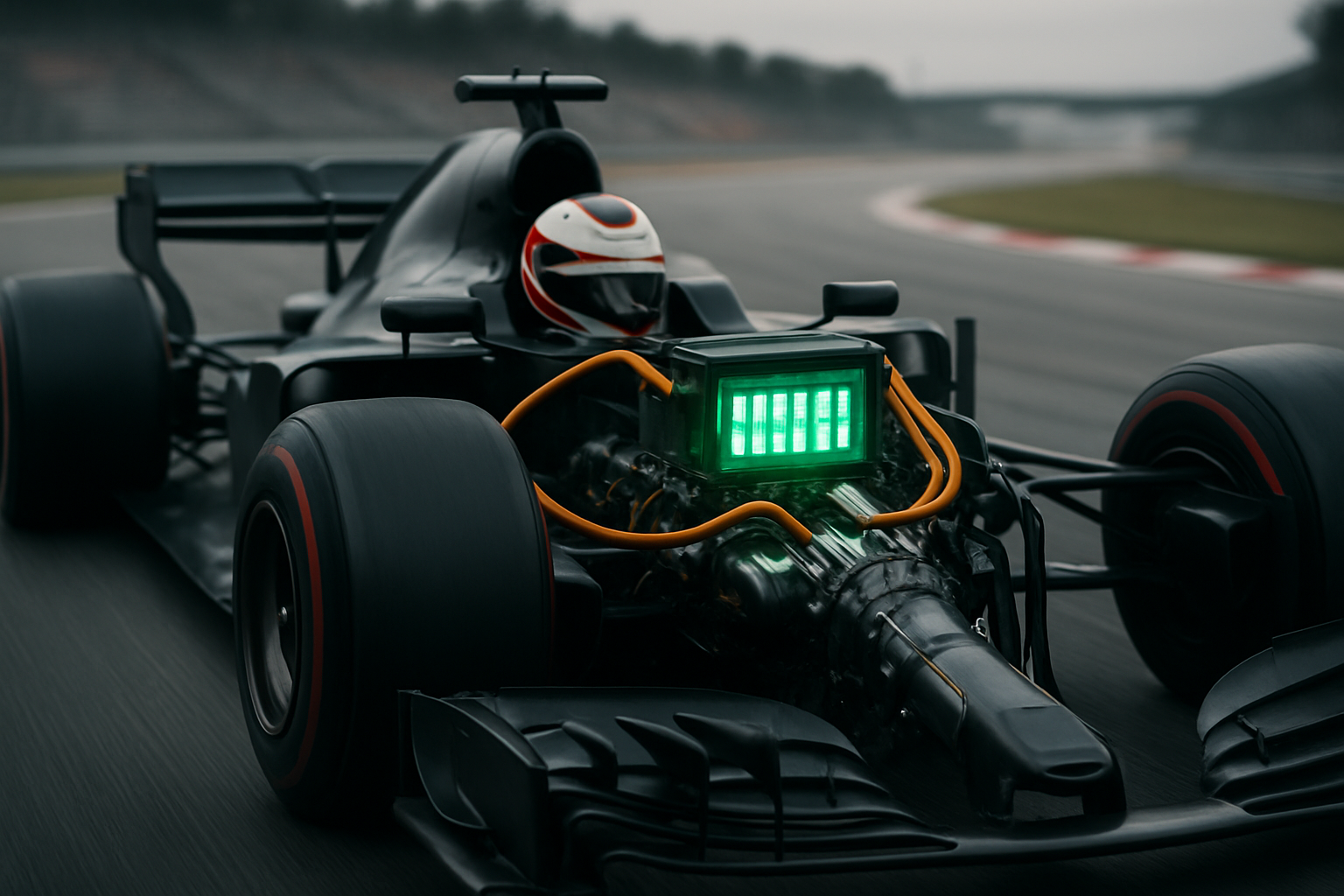The Untapped Potential of Synthetic Fuels in Motorsports
Imagine a world where high-octane racing thrills continue unabated, yet with a dramatically reduced environmental impact. This isn't a far-off fantasy, but a tangible reality emerging through the advent of synthetic fuels in motorsports. As the automotive world grapples with sustainability concerns, synthetic fuels are revving up to revolutionize the racing industry, promising to preserve the heart-pounding excitement of motorsports while addressing pressing environmental issues.

The production of synthetic fuels involves combining hydrogen with carbon dioxide, typically captured from industrial processes or directly from the air. This process results in liquid hydrocarbons that can be used in existing engines without significant modifications. The key advantage lies in the potential for these fuels to be carbon-neutral, as the CO2 emitted during combustion is offset by the CO2 captured during production.
Synthetic Fuels in the Fast Lane
Motorsports have always been at the forefront of automotive innovation, and synthetic fuels are no exception. Several racing series are exploring or have already implemented synthetic fuels as part of their sustainability initiatives. Formula 1, for instance, has announced plans to introduce 100% sustainable fuel by 2026, with synthetic fuels playing a crucial role in this transition.
The appeal of synthetic fuels in motorsports lies in their ability to maintain the high-performance characteristics required for competitive racing while significantly reducing the carbon footprint. Unlike electric vehicles, which face challenges in terms of range and rapid recharging in race conditions, synthetic fuels allow for quick refueling and maintain the familiar roar of combustion engines that fans cherish.
The Chemistry Behind the Power
At the molecular level, synthetic fuels can be tailored to meet specific performance requirements. This customization allows for the creation of fuels with higher octane ratings, improved combustion efficiency, and reduced emissions. The process involves carefully controlling the carbon chain length and structure of the fuel molecules, resulting in a product that can outperform traditional petroleum-based fuels in many aspects.
One of the most promising aspects of synthetic fuels is their potential for higher energy density compared to conventional fuels. This means that vehicles can potentially travel further on the same volume of fuel, a crucial factor in endurance racing events like the 24 Hours of Le Mans or the Dakar Rally.
Overcoming the Hurdles
Despite their potential, synthetic fuels face several challenges on their path to widespread adoption in motorsports. The primary obstacle is the high cost of production, which currently makes synthetic fuels significantly more expensive than their fossil-based counterparts. However, as technology advances and production scales up, these costs are expected to decrease.
Another challenge lies in the energy-intensive nature of synthetic fuel production. To truly achieve carbon neutrality, the entire production process must be powered by renewable energy sources. This requires substantial investment in green energy infrastructure, a goal that aligns with the broader sustainability objectives of many racing organizations.
Regulatory frameworks also need to evolve to accommodate and incentivize the use of synthetic fuels. This includes developing standardized methods for calculating the lifecycle emissions of synthetic fuels and establishing appropriate credits or incentives for their use in motorsports.
The Ripple Effect on Consumer Vehicles
The development of synthetic fuels in motorsports has implications that extend far beyond the racetrack. As with many automotive technologies, advancements made in the crucible of competitive racing often find their way into consumer vehicles. The refinement of synthetic fuel technology in motorsports could pave the way for broader adoption in passenger cars, potentially offering a solution for reducing emissions in regions where electric vehicle infrastructure is lacking.
Moreover, the use of synthetic fuels could provide a lifeline for classic and vintage cars, allowing enthusiasts to continue enjoying their vehicles without the guilt associated with burning fossil fuels. This aspect of synthetic fuels resonates strongly with the automotive community’s desire to preserve motoring heritage while embracing sustainability.
The Future of Racing: Green and Mean
As synthetic fuels continue to evolve, we can expect to see a transformation in the world of motorsports. Races may soon be powered by fuels derived from industrial waste CO2 or even from carbon captured directly from the atmosphere. This shift could redefine the concept of sustainability in racing, turning each lap into a demonstration of environmental responsibility without sacrificing the thrill of competition.
The integration of synthetic fuels also opens up new avenues for technical innovation in engine design. Engineers will be challenged to create power units that can extract maximum performance from these new fuels while maintaining reliability and efficiency. This could lead to a new era of engine development, potentially reversing the trend towards standardization in some racing series.
A New Chapter in Motorsport History
The introduction of synthetic fuels in motorsports marks the beginning of an exciting new chapter in racing history. It represents a convergence of cutting-edge chemistry, environmental consciousness, and the unrelenting pursuit of performance that defines the spirit of motorsports. As synthetic fuels become more prevalent on racetracks around the world, they promise to preserve the essence of racing while steering the sport towards a more sustainable future.
The roar of engines, the smell of burning rubber, and the spectacle of high-speed competition need not be relegated to the annals of history. With synthetic fuels, motorsports can continue to thrill and inspire, serving as a testament to human ingenuity and our ability to adapt in the face of global challenges. As we look to the future, the checkered flag waves not just for the winners on the track, but for a cleaner, greener, and no less exhilarating era of motorsports.






